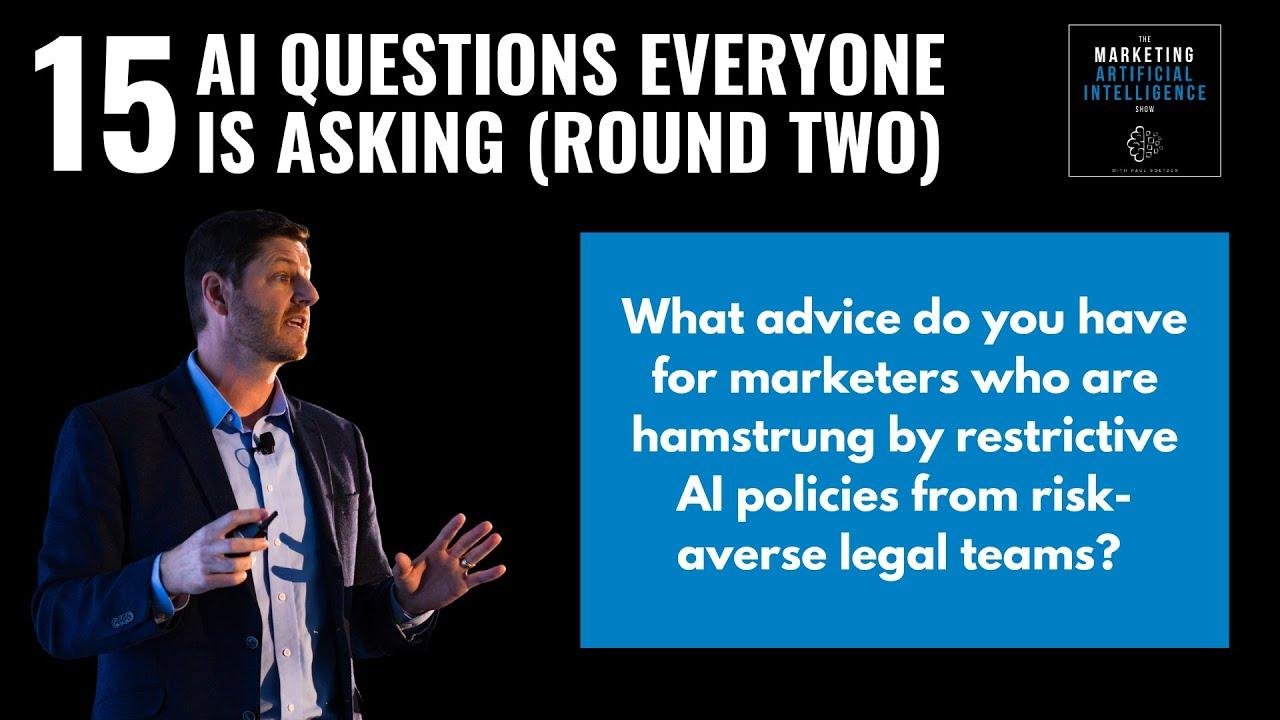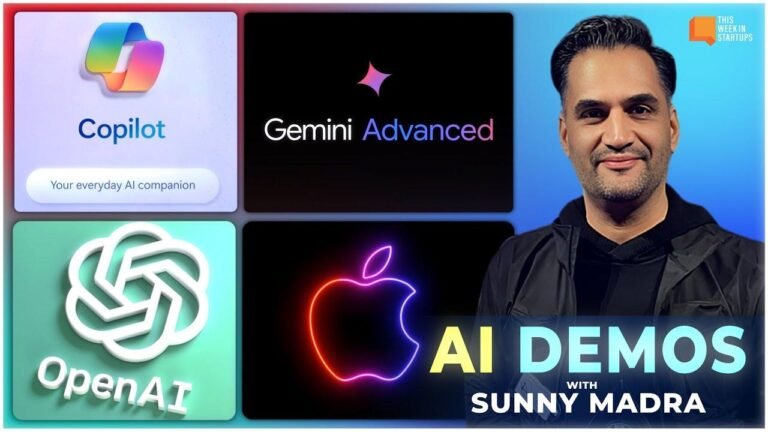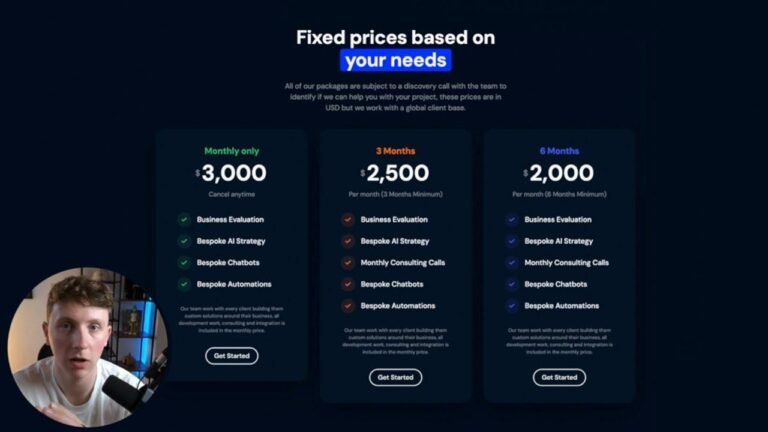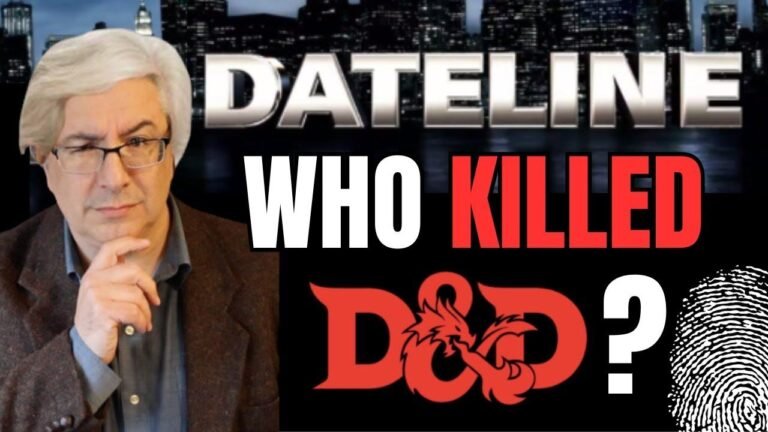15 Must-Ask AI Questions – Tips for Marketers Navigating Tight AI Rules from Legal.

Marketers, feeling leashed by legal's AI scare? 🐕🦺🚫
Unleash potential with AI tools that won't bite like Descript. 🎙️✂️
Chat with legal, find the no-sweat zones. It's about harmonizing tunes, not fearing the tech boogeyman. 🤝🎶👻
Unlocking the Potential of AI for Marketers with Legal Constraints
Key Takeaways:
| Communication Is Key | Understand AI Use Cases | Addressing Copyright Concerns |
|---|---|---|
| Engage in discussions with legal teams to clarify misunderstandings about AI. | Identify AI technologies and use cases that present low risk (e.g., transcription for podcasts). | Understand that AI-generated content cannot own a copyright, but work using AI as an assistant remains human-authored. |
Initiating Dialogue for Clarification
Understanding Legal Restrictions
It is crucial for marketers restrained by tight AI policies to open a dialog with their legal teams. Understanding the reasoning behind these restrictions is the first step in finding a resolution. By involving and demonstrating AI's utility in low-risk scenarios, marketers can gradually alleviate legal concerns.
Exploring Acceptable Applications
Seeking Solutions within AI Constraints
Marketers should propose utilizing AI tools in areas that do not introduce risk, such as using transcription services for public podcasts. These are cases where AI can assist without posing any legal threats.
Navigating the Legalities of AI in Marketing
Understanding AI’s Impact on Copyright Law
Copyright law is often at the heart of restrictive AI policies. It is vital for marketers to comprehend that AI-generated content, by itself, does not hold copyright. A well-informed team can recognize the vast possibilities for using AI without infringing on any legal aspects.
Applying AI to Marketing Effectively
AI can play a significant role in creating content and transforming the tone of communication. For instance, enhancing the empathy in emails written by salespeople. Recognizing these opportunities allows marketers to leverage AI responsibly and creatively.
Educating Legal Teams About AI Use Cases
Proactive and Understanding Approach
A proactive stance combined with understanding can foster a collaborative effort between marketers and legal teams. Educating legal counterparts on how AI works and demonstrating potential non-risky applications can bridge the gap.
Collaborative Development of AI Policies
Working alongside legal experts to shape AI policies that respect both legal restrictions and marketing ambitions can lead to innovative and compliant marketing strategies.
Incorporating AI Responsibly
Complying with Copyright Norms
Compliance with copyright norms is not an obstacle if marketers use AI as a tool rather than the sole creator of content. This perspective allows the content to be human-authored while benefiting from AI's capabilities.
AI-Assisted Creative Solutions
A nuanced understanding of how AI can assist in content generation can open doors to numerous creative solutions without infringing on legal tenets.
Creating Value with AI Assistive Technologies
Value Creation for Marketers and Legal
The convergence of marketing goals with legal compliance can create value, especially in scenarios where AI is used as an assistive technology rather than a content creator.
Addressing Concerns with Transparency
Transparency about the use of AI and its role in content creation can alleviate any concerns from risk-averse legal teams, paving the way for innovation in marketing.
Conclusion
Final Thoughts on AI Integration
The integration of AI in marketing, when navigated thoughtfully, can benefit all parties involved by enhancing communication and respecting legal boundaries. Marketers should remain proactive, seek education about AI, and involve legal teams early in the process.
Embracing the Future of Marketing with AI
🚀 As the marketing landscape evolves, embracing AI will be key to remaining competitive and innovative while adhering to legal standards. 🤖
FAQs:
How can marketers circumvent restrictive AI policies?
By engaging in open dialogue with legal teams and exploring low-risk AI applications.
Can AI-generated content be copyrighted?
No, AI-generated content can't hold copyright; however, content created with AI assistance is considered human-authored.
What strategies can marketers use to integrate AI?
They should identify non-risky AI use cases, educate legal teams on AI capabilities, and apply AI to enhance human-authored content.
List of Recommendations for Marketers Restricted by AI Policies:
- Start conversations with legal teams to demystify AI.
- Demonstrate practical, low-risk uses of AI in marketing.
- Understand the legalities surrounding AI and copyright.
- Involve legal teams in developing ethical AI use guidelines.
- Educate all stakeholders on the nuances of AI in content generation.
- Advocate for AI tools that augment human creativity and productivity.


![Creating consistent characters with DALL-E [Tutorial]](https://gptstester.com/wp-content/uploads/2024/01/WP-20240118172618-477231-768x432.jpg)



